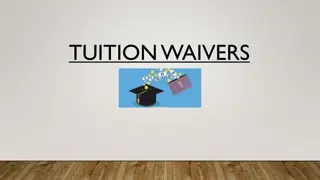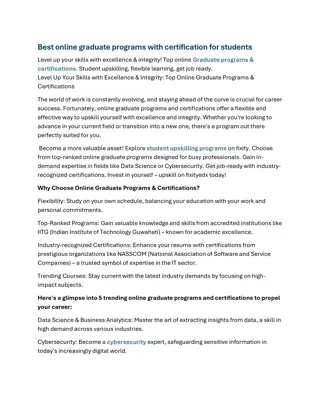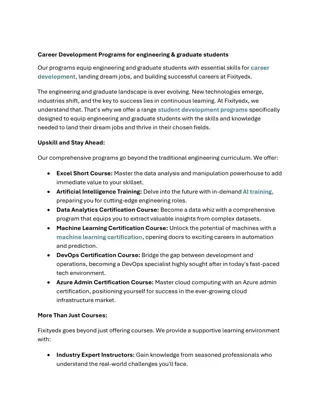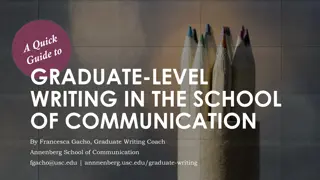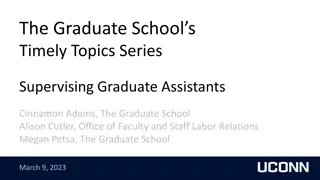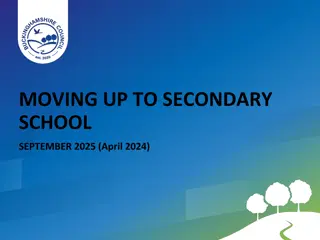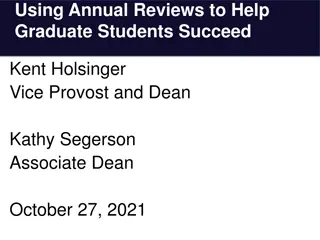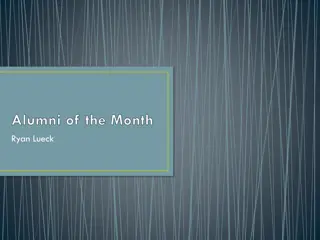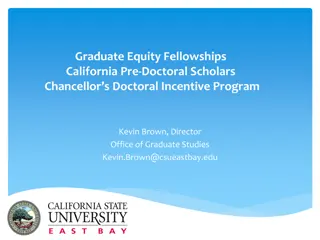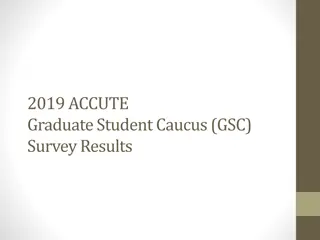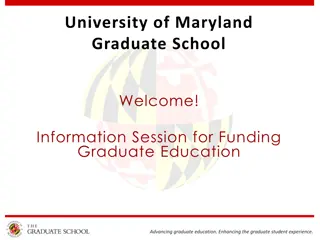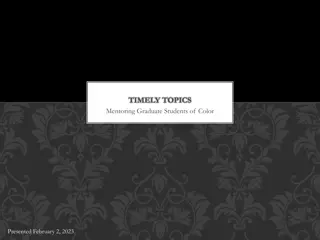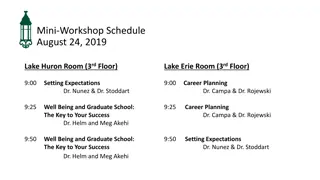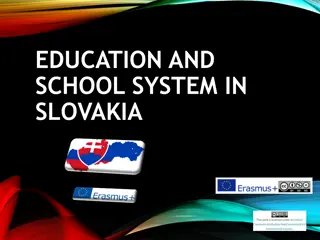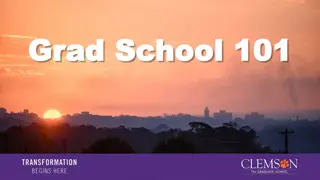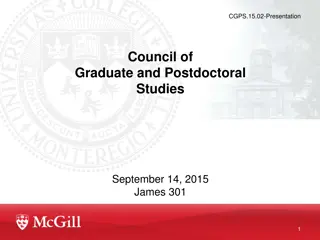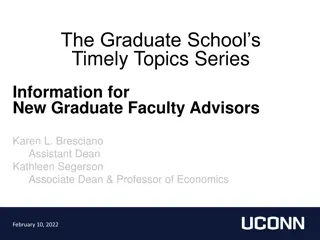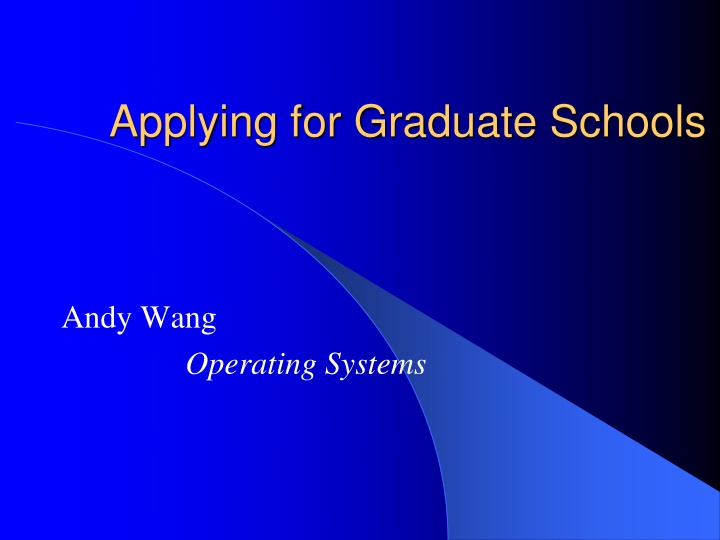
Demystifying Graduate School: Financial Aid, Opportunities, and Realities
Discover the truth about affording graduate school, available scholarships, assistantships, and student loans. Learn about the advantages for US citizens, differences in curriculum, and exciting research areas in the field of graduate studies. Prepare for a project-oriented, research-focused academic environment with this comprehensive guide.
Download Presentation

Please find below an Image/Link to download the presentation.
The content on the website is provided AS IS for your information and personal use only. It may not be sold, licensed, or shared on other websites without obtaining consent from the author. If you encounter any issues during the download, it is possible that the publisher has removed the file from their server.
You are allowed to download the files provided on this website for personal or commercial use, subject to the condition that they are used lawfully. All files are the property of their respective owners.
The content on the website is provided AS IS for your information and personal use only. It may not be sold, licensed, or shared on other websites without obtaining consent from the author.
E N D
Presentation Transcript
Applying for Graduate Schools Andy Wang Operating Systems
Myth 1 I cannot afford graduate school
Reality Graduate school is FREE (pretty much) For both public and private schools If you are good enough to get into a graduate school Scholarships/grants Research assistantship (work for a lab) Teaching assistantship (work for a class)
If you work for the state It will pay up to 6 credit hours per semester
How about my student loans? No repayment/interest accrual while enrolled half time Can be consolidated Interest is reduced from your income before tax is computed Possible repayment cap and cancellation Six-month grace period Reset if back to half-time within 6 months
Myth 2 I won t have a chance to get into a graduate school
Reality You are in luck If you are a US citizen or permanent resident Not enough US students are pursuing graduate schools Your major advantages Eligible for many funding sources No language barriers Lower cost to hire you as a research or teaching assistant
Myth 3 Graduate curriculum is just like the undergraduate curriculum
Reality Take fewer classes per semester Master Emphasis on development Ph.D. Discover something new Emphasis on research For people who love to solve puzzles
Some Cool Research Areas AI and robotics (hoarding ducks) Olfactory research Wearable computing Life-long storage
A Typical Graduate Course Not as much guidance Project-oriented You need to develop your own projects
Metric of Success Undergraduate GPA Master Projects, thesis, skill set Ph.D. Number of quality publications
Nature of Your First Job Undergraduate QA for large companies for 2 to 5 years Will pick up graduate-level skills Development for small companies Master Mostly development Ph.D. Professor, researcher, industry, grant manager
Some Ph.D. Perks Office Flexible scheduling Salary Secretarial support Terms for termination
Application Process Requirements Personal statement GPA, max(overall, major, upper division) Two GRE exams 3 to 4 recommendation letters Relevant upper-division courses Independent studies Internships
Personal Statement Interested research areas Why are they intriguing? Research experience/projects What have you tried and learned? Why do you need a master/Ph.D? Why do you pick this school?
GRE Exams Computer science GRE Theory Systems Architecture General GRE English Math Writing
Recommendation Letters How to approach? If you receive an A in a class Ask the professor as quickly as possible Try to use the letter of recommendation service Interfolio Provide the following info: Graduate program names, degrees, schools, deadlines Photo, personal statement, resume, transcript
Whether to waive your rights to access the letter If you don t The letter will carry less weight
Other Approaches Volunteer for Independent study Internship for companies

